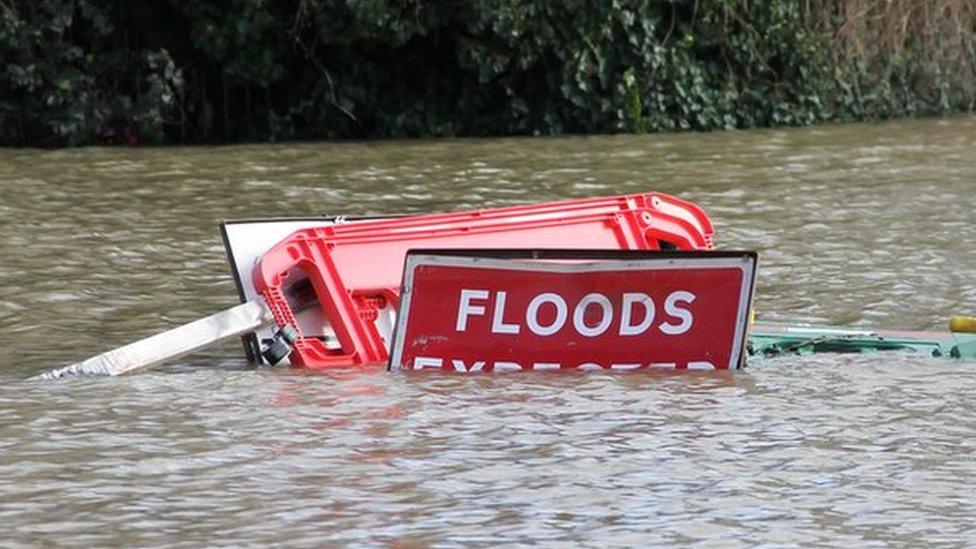West Midlands floods: Defences 'not the answer for the future'
- Published
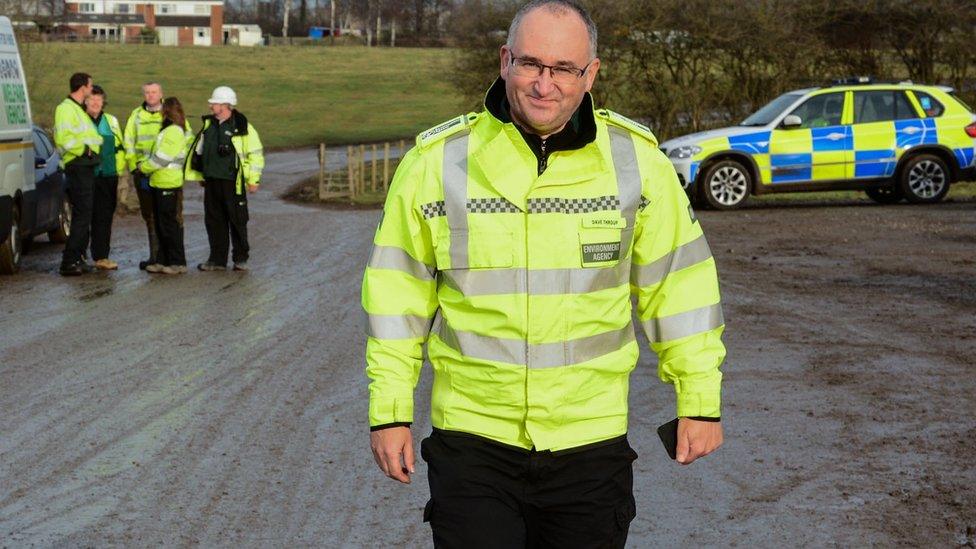
Dave Throup, pictured during his time with the Environment Agency, retired in 2021
Flood defences are not the answer to future flooding, said a former Environment Agency (EA) worker.
In a thread on X, formerly Twitter, Dave Throup, who retired from the agency in 2021, said barriers would not be enough as climate change increased the frequency and ferocity of flooding.
Instead, he said, there needed to be natural flood management measures along the entire stretch of rivers.
The EA said it was developing a "broad range" of actions to tackle flooding.
Allow X content?
This article contains content provided by X. We ask for your permission before anything is loaded, as they may be using cookies and other technologies. You may want to read X’s cookie policy, external and privacy policy, external before accepting. To view this content choose ‘accept and continue’.
In his social media posts, Mr Throup said while many communities along the rivers Severn and Wye were protected by barriers, they were giving a "false sense of security".
Floods, he said, were getting bigger due to a rapidly changing climate and, in 2020, every flood defence on the Severn and Wye had been within a metre of overtopping.
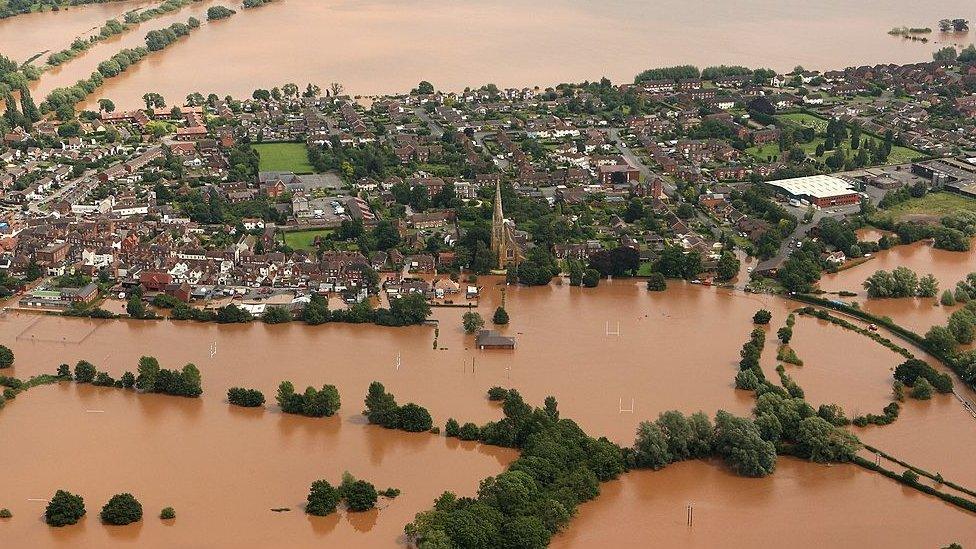
Before it got its barriers, Upton-on-Severn regularly flooded
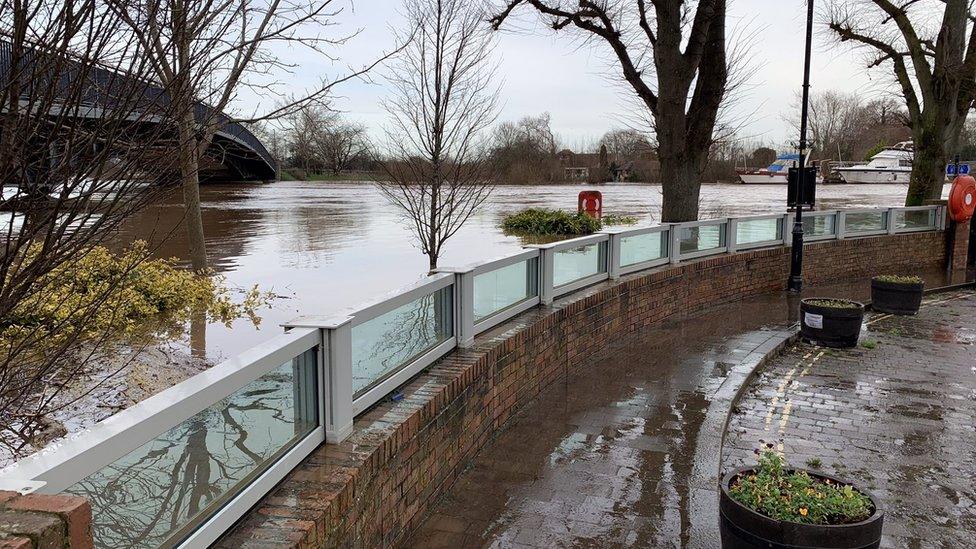
But its £4.4m defences, built in 2012 now protect 64 properties
With predictions showing "very significant increases" in river levels, he said there needed to be catchment-wide plans to use natural methods such as planting, ponds and bogs which can slow the flow of rivers.
Reducing the severity of flooding by lowering out the flood peak as it passes along a river is known as attenuation, and works by spreading out the drainage of a river along its catchment.
Mr Throup's comments were widely shared on X, including by journalist Caitlin Moran.
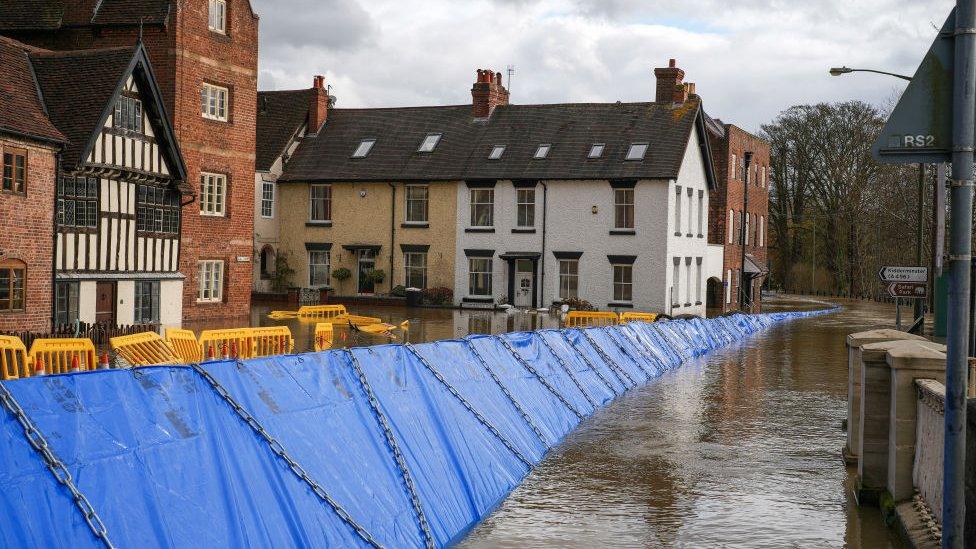
Beale's Corner, in Bewdley, is getting its own permanent defences after temporary defences overtopped in 2020
Currently, Bewdley, Upton-on-Severn, Shrewsbury and Ironbridge have defences.
Beales Corner, the opposite side of the current permanent defences in Bewdley, is getting its own permanent protection, with Severn Stoke in Worcestershire also getting its own barriers.
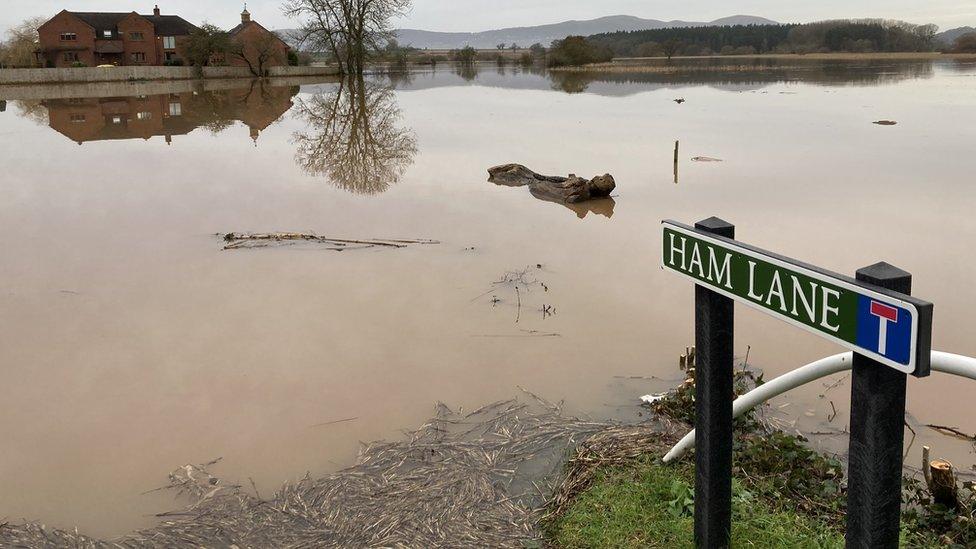
Severn Stoke flooded in January amid delays to its flood barriers
However, the barriers have not been built quickly enough in Severn Stoke and its residents flooded again last week.
Asked by BBC Hereford & Worcester about the delayed construction, Harriett Baldwin, West Worcestershire MP, said the project had planning permission and funding but was "frustratingly" delayed when the Environment Agency failed to come to an agreement with a contractor.

Harriet Baldwin insisted Severn Stoke's barriers are a top priority
The Tory MP said the scheme was a "top priority" for her, adding she would meet with the EA about the issue.
"It will get done. I will not give up. I have been working on this for 10 years. It will get done," she said.
The EA said it had paused earthworks until the spring, pending the agreement of an affordable price with a supplier and that affordability of the scheme was a "key challenge" but it had not given up.
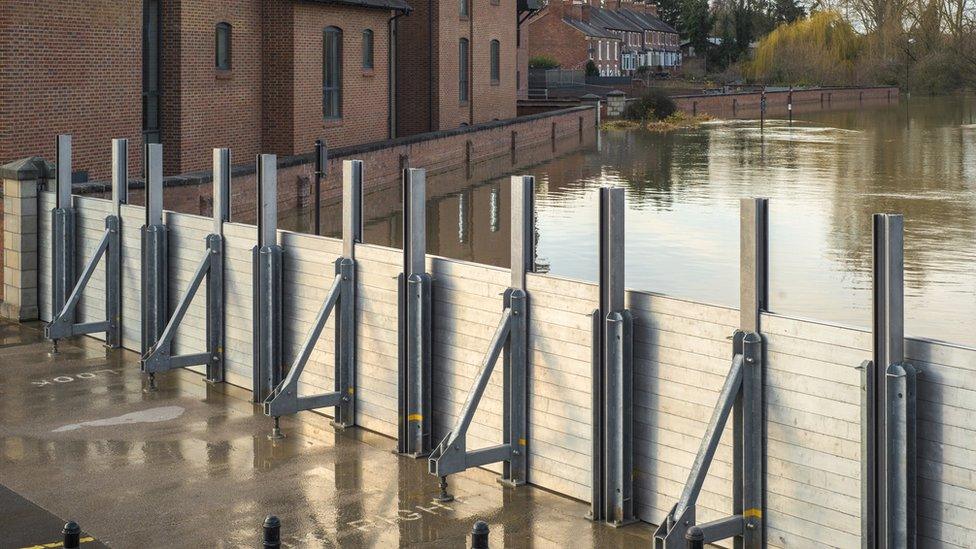
Shrewsbury has its flood defences in Frankwell
In response to questions about future flood preparedness, the EA said: "We work tirelessly to protect communities from the threat of flooding, maintaining approximately 76,000 flood assets across England.
"It is thanks to this work we have protected more than 75,000 properties from flooding caused by Storm Henk."
It said it was "essential" communities got ready for the impacts of climate change by becoming more resilient as a nation.
"That is why creating climate-resilient places lies at the heart of our flood strategy; ensuring we embrace a broad range of resilience actions to make us better prepared, such as £200m to test and develop new ways to create a nation resilient to flooding and coastal change," the EA added.

Follow BBC West Midlands on Facebook, external, X, external and Instagram, external. Send your story ideas to: newsonline.westmidlands@bbc.co.uk, external
- Published29 December 2023
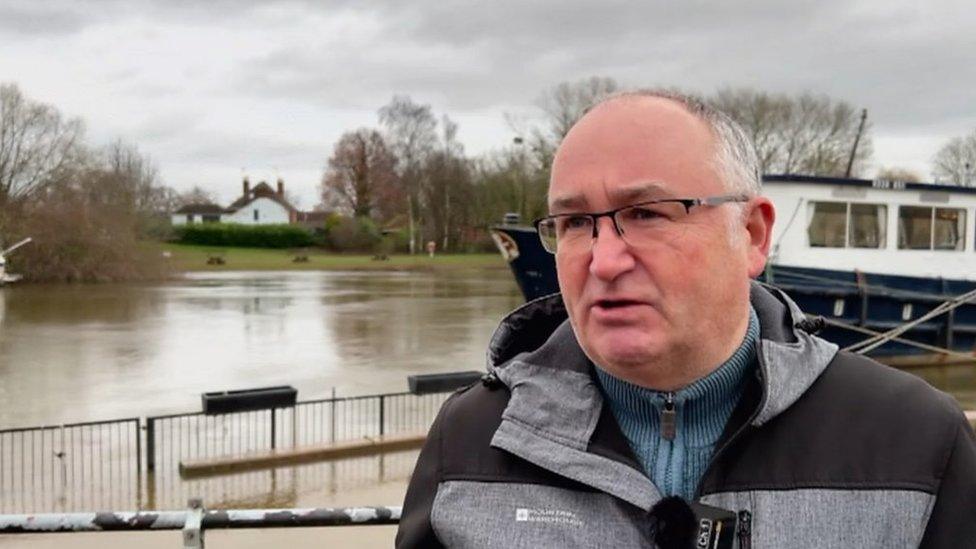
- Published26 December 2021

- Published29 October 2021
